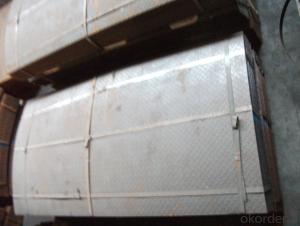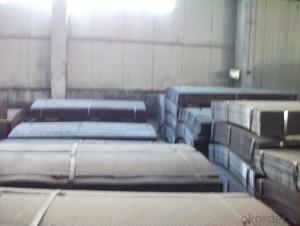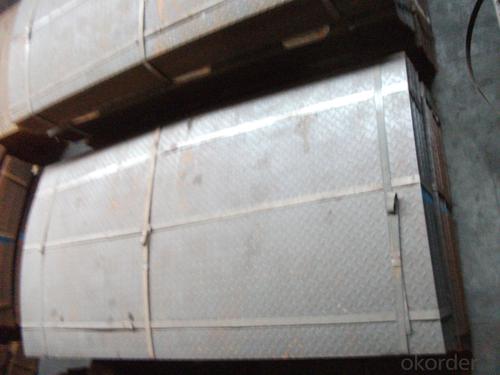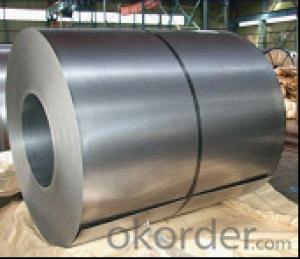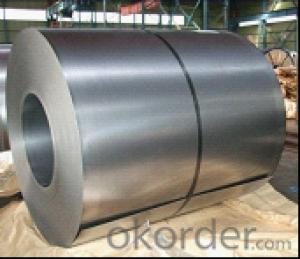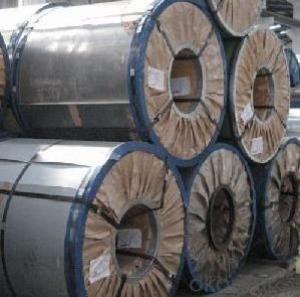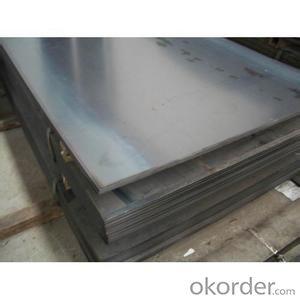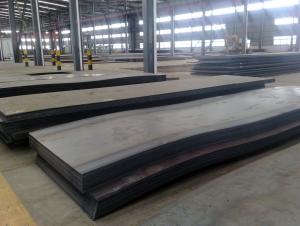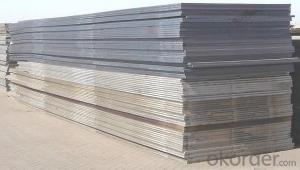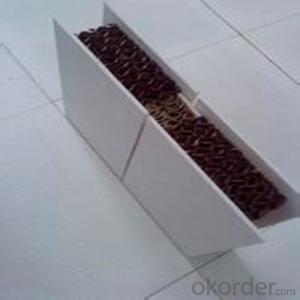hot rolled alloy sheet
- Loading Port:
- China Main Port
- Payment Terms:
- TT OR LC
- Min Order Qty:
- -
- Supply Capability:
- -
OKorder Service Pledge
OKorder Financial Service
You Might Also Like
Product: | Hot Rolled Steel Coils/Sheets |
Material: | Q195,Q235,A36,SS400,S235JR,Q345,ST37-2, CCSB etc |
Standard : | JIS G3002 GB/T251B |
Technique: | hot rolled |
Thickness | 1.2mm to 200mm |
Tolerance of thickness: | :+/-0.03mm |
Width: | 750mm-2000mm |
Tolerance of width: | :+/-5.00mm (aiming to +/-2.00mm) |
Normal width: | 914mm, 1000mm, 1200mm, 1219mm, 1250mm,1500mm |
Length: | According to requirement |
Coil ID: | 508mm-610mm |
Coil Weight: | 10-25 Metric Tons |
Surface: | Black, Chromate, fingerprint resistant treatment, slight oiled or non-oiled, dry |
Port of Loading: | Tianjin/Shanghai port |
Packaging Details: | Standard export packing or according to the clients required |
Delivery Time | Within 30 days after received 30% deposit or workable L/C |
Payment Terms: | L/C,T/T |
- Q: Are steel sheets suitable for exterior cladding?
- Indeed, exterior cladding can be accomplished with steel sheets. Steel, as a material, possesses durability and strength, rendering it capable of enduring diverse weather conditions such as intense sunlight, torrential rain, and extreme temperatures. It exhibits resistance towards corrosion and avoids warping or rotting, unlike alternative materials. Steel sheets further offer an array of colors and finishes, catering to a broad spectrum of design possibilities. Moreover, the installation and maintenance of steel cladding are effortless, thereby contributing to its widespread usage for exterior purposes. Consequently, steel sheets offer a dependable and visually appealing choice for exterior cladding.
- Q: Can steel sheets be used for medical equipment?
- Yes, steel sheets can be used for medical equipment. Steel is a durable and hygienic material that is often used in the manufacturing of medical instruments, surgical tools, and equipment due to its strength, corrosion resistance, and ease of sterilization.
- Q: What is the difference between a satin and mirror finish steel sheet?
- The appearance and level of reflectivity distinguish a satin finish steel sheet from a mirror finish steel sheet. A satin finish steel sheet displays a sleek, non-glossy appearance with a minimal level of reflectivity. Achieved through the use of abrasive materials, it creates a brushed or textured surface. This finish is often favored for its contemporary and subtle aesthetic. Satin finish steel sheets find common usage in architectural and interior design applications, such as kitchen appliances, countertops, and wall panels. On the contrary, a mirror finish steel sheet exhibits an immensely reflective surface that closely resembles a mirror. Achieved by polishing the steel sheet to a high gloss using fine abrasives and buffing compounds, this finish boasts an intense shine and exceptional clarity. It reflects light remarkably, resulting in a glamorous and opulent appearance. Mirror finish steel sheets are commonly employed in decorative applications, including automotive trim, jewelry, and ornamental architectural elements. To summarize, the primary distinction between a satin and mirror finish steel sheet resides in their appearance and level of reflectivity. Satin finish offers a smooth, matte appearance with minimal reflectivity, while mirror finish provides an incredibly reflective, mirror-like surface.
- Q: Can steel sheets be used for insulation?
- Steel sheets are not suitable for insulation as they lack the ability to retain heat or prevent effective heat transfer due to their good conductivity of heat and electricity. Instead, steel sheets can even conduct heat and cold, rendering them ineffective as insulators. On the other hand, materials like fiberglass, foam, or cellulose are far superior for insulation as they excel at trapping and preventing the transfer of heat, making them the ideal choice for insulation purposes.
- Q: How are steel sheets tested for quality?
- Steel sheets are tested for quality through a variety of methods to ensure they meet the required standards. One of the most common tests is the tensile strength test, which measures the maximum amount of stress a steel sheet can withstand before it breaks. This test is crucial as it determines the durability and reliability of the steel sheet in various applications. Another important test is the hardness test, which measures the resistance of the steel sheet to indentation or scratching. This is done using specialized tools such as a Brinell or Rockwell hardness tester. The hardness test helps determine the steel sheet's ability to withstand wear and tear, making it suitable for specific applications. The thickness of the steel sheet is also checked using a micrometer or ultrasonic thickness gauge to ensure it meets the required specifications. This is important as the thickness affects the sheet's strength and ability to withstand external forces. Furthermore, visual inspection is conducted to identify any surface defects, such as cracks, pits, or corrosion. This is done by trained professionals who carefully examine the steel sheet for any irregularities that might compromise its quality. Chemical composition analysis is another crucial test that determines the percentage of various elements present in the steel sheet. This analysis is performed using techniques like spectrometry or X-ray fluorescence to ensure the steel sheet meets the desired chemical requirements. Additionally, steel sheets may undergo tests such as impact testing, bend testing, and fatigue testing to assess their performance under specific conditions. These tests simulate real-world scenarios to ensure the steel sheet can withstand the anticipated loads and stresses it may encounter. Overall, steel sheets are rigorously tested for quality to ensure they meet the necessary standards, providing customers with reliable and durable products. These tests help manufacturers identify any potential flaws or defects, allowing them to rectify issues and deliver high-quality steel sheets to the market.
- Q: Can steel sheets be used for industrial machinery?
- Yes, steel sheets can definitely be used for industrial machinery. Steel is a widely used material in the manufacturing industry due to its exceptional strength, durability, and versatility. Steel sheets can be formed, machined, and welded into various shapes and sizes to meet the specific requirements of industrial machinery. Additionally, steel sheets offer excellent resistance to corrosion, impact, and extreme temperatures, making them ideal for heavy-duty applications. The use of steel sheets in industrial machinery ensures structural integrity, longevity, and enhanced performance, making it a preferred choice for many manufacturers in the industry.
- Q: Can the steel sheets be used for storage racks or shelves?
- Indeed, storage racks or shelves can be constructed using steel sheets. Steel, being a robust and long-lasting material, possesses the ability to bear substantial weights, rendering it perfect for storage needs. Steel sheets can be customized to the desired dimensions through cutting and shaping processes, and effortlessly connected by welding or bolting, resulting in resilient storage racks or shelves. Moreover, steel exhibits resistance against corrosion and can endure adverse environmental circumstances, making it an appropriate option for both indoor and outdoor storage purposes.
- Q: Can steel sheets be used for HVAC equipment?
- Yes, steel sheets can be used for HVAC equipment. Steel is a durable and strong material that is commonly used in the construction of HVAC systems, including ductwork, air handling units, and heat exchangers. It provides excellent structural integrity and can withstand high temperatures and pressures, making it suitable for various HVAC applications.
- Q: Can steel sheets be used for staircase railings?
- Indeed, staircase railings can be fashioned from steel sheets. Steel, renowned for its durability and strength, is frequently employed in construction and engineering endeavors. By manipulating steel sheets, one can fashion diverse forms and patterns, resulting in chic and contemporary staircase railings. Such railings can be effortlessly tailored to complement various architectural styles and personal tastes. Furthermore, steel railings are celebrated for their enduring nature and minimal upkeep demands, rendering them a favored option for staircase installations.
- Q: Are steel sheets suitable for water tanks or reservoirs?
- Yes, steel sheets are suitable for water tanks or reservoirs. Steel is a durable and strong material that can withstand the weight of water and does not easily corrode or leak. It is commonly used in the construction of water tanks and reservoirs due to its reliability and longevity.
Send your message to us
hot rolled alloy sheet
- Loading Port:
- China Main Port
- Payment Terms:
- TT OR LC
- Min Order Qty:
- -
- Supply Capability:
- -
OKorder Service Pledge
OKorder Financial Service
Similar products
Hot products
Hot Searches
Related keywords
